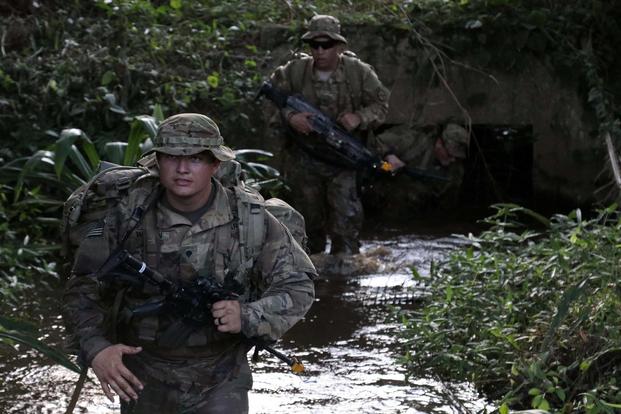The head of Army logistics said Tuesday he wants to make sure combat brigades of the future can operate on their own in combat for an entire week without resupply.
Currently, brigade combat teams can go about three days without needing to be resupplied with necessities such as fuel, water, food and ammunition, depending on battlefield conditions.
"Our goal [is] to have brigade combat teams sustain themselves for seven days without resupply," Lt. Gen. Aundre Piggee, who is responsible for Army logistical operations as deputy chief of staff for Army G4, told an audience at an Institute of Land Warfare breakfast sponsored by the Association of the United States Army. "That is significant. Seven days, that is a challenge."
Such a change may require the service to improve fuel consumption in combat vehicles by as much as 30 percent, Piggee said, adding, "We have to be creative in reducing demand to meet this goal."
The Army has taken steps to meet this goal by ensuring that BCTs have "a mobile supply of parts we forecast will be the most needed in austere environments fighting a decisive action operation," he said. "We have greatly improved our supply of spare parts across the Army."
The service also wants to standardize additive manufacturing by relying more on 3D printers so units can print spare parts in the field as needed, Piggee said. "We do not need to make repair parts 8,000 miles from soldiers if we can print them on the battlefield at their forward locations."
To accomplish this, Army Materiel Command is establishing a center of excellence for advanced manufacturing at Rock Island Arsenal in Rock Island, Illinois.
"We are in the process of finalizing policy so we can train this capability," Piggee said.
In 2016, the Army began improving its capability to "set a theater in a large operational deployment against a capable adversary," a skill the service had not had to use in more than a decade since combat forces operated out of well-supplied forward operating bases in Iraq and Afghanistan, he said.
"I believe we are much better shape than we were just two years ago," Piggee said. "We have gone back to the basics. We were not used to moving and maintaining equipment because equipment was waiting for us at forward operating bases and contractors did most of our maintenance. We are now training this capability every day."
-- Matthew Cox can be reached at matthew.cox@military.com.










